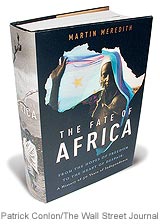In Locked in the Cabinet, Robert Reich’s amusing allegory about life in Washington, Reich laments that the Democratic Party — and in particular the labor constituents in the party — did not support his vision of education and training as a means of enabling the labor force to adapt to and flourish in a time of rapid economic change and dislocation. Instead, they constituted what Reich called the "Save the Jobs Party," which wanted to preserve the industry, the companies and the jobs that exist today.
I think there is a similar phenomenon in antitrust. Antitrust is about process, and a particularly arduous one at that. We are proud that antitrust "protects competition, not competitors". We say that the market has winners and losers and that that is good.
Unfortunately, process is less attractive, in the concrete world in which real disputes arise and real grievances are formed, than is a comforting end-state. And political actors, I fear, are generally more zealous in guarding the latter than in seeking the former.
So, I can imagine constituents and lobbyists and public interest groups demanding the intervention of antitrust authorities to prevent the BA/NYNEX merger, to open up Korea for more car exports, or to restrict the imports of Japanese television sets into the United States. And I can imagine constituents urging that competition authorities in the EC should leave the Boeing/McDonnell Douglas merger alone or that the antitrust agencies here should stop meddling with hospital mergers in Michigan. But it’s hard to imagine tens of thousands of people gathered on the Mall, carrying placards with pictures of Joseph Schumpeter, and demanding that the government give them more "creative destruction."
Source:
A. DOUGLAS MELAMED. "International Antitrust in an Age of International Deregulation." Address Before George Mason Law Review Symposium: Antitrust in the Global Economy, Washington, D.C., October 10, 1997.
(Note: At the time, Melamed was Principal Deputy Assistant Attorney General, Antitrust Division, U.S. Department of Justice. Bold emphasis was added by Diamond.)

